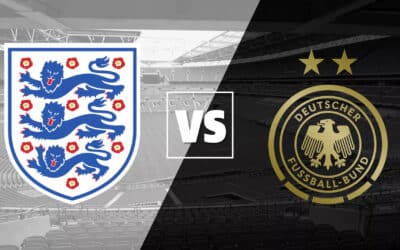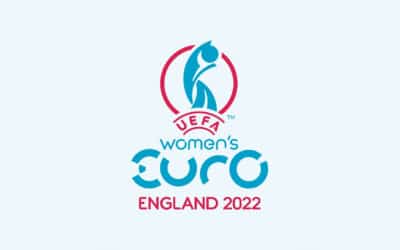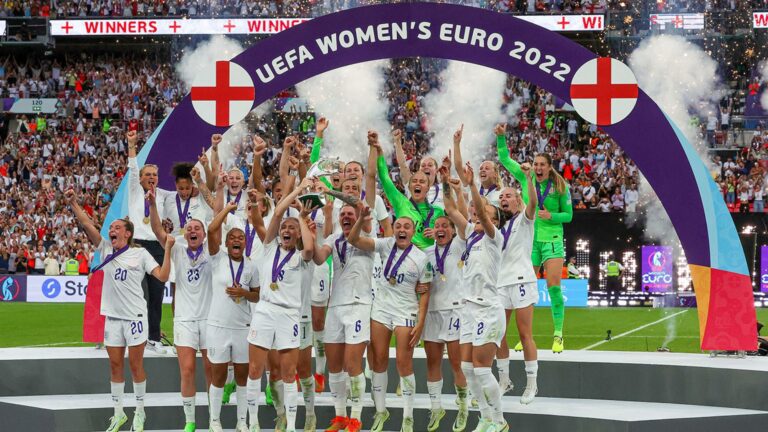Over 17m viewers tuned in to watch England’s Lionesses defeat Germany in the final of the Euros on Sunday on BBC One, with another 5m viewers across the BBC’s digital platforms making the game the most-watched women’s game.
The game was also the most-watched TV event of 2022 so far in the UK, while the tournament as a whole saw total TV reach of 27.4m (15mins or more) and was streamed 18m times across BBC iPlayer and BBC Sport website and app.
The live audience at Wembley for the final also reached almost 90,000, and was the largest crowd ever at a UEFA game, including men’s games. But what does this actually mean for the women’s game? Traditionally women’s football has attracted lower sponsorship, lower wages, and lower attendances. Is that all about to change?
For Katy Leeson, CEO of Manchester’s Relentless Group which holds a broad portfolio of investments from property to sports teams, the change is already visible, not least in the attitude of fans at Salford City FC: “We’ve already had a few fans at Salford asking when our Lionesses are starting their season so it’s translating into a wider interest in the female aspect of the sport and it’s brilliant to see,” she said. “The Euro’s win will change the face of sport in our country.”
Richard Adelsberg, CEO of specialist sports and esports agency Ear to the Ground, agrees. He said: “It feels a like a significant moment in time for women’s football globally. The record attendance of any euros match ever (men or women) and a fanbase that feels much more brand friendly than we are used to seeing at finals of major football tournaments. Now is the moment for brands to play a significant role in the next phase of the sport’s development.”
It looks like brands are already listening. Right-back Lucy Bronze, the former Liverpool and Man City player who will ply her trade at Barcelona this season, has already struck deals with Pepsi and Visa. The entire squad are reportedly due to receive £55,000 each, totalling £1.3m for winning the tournament under a deal with the FA, and that’s on top of their £2,000 per game appearance fee.
That’s still pocket change compared to the £28.5m Italy’s men received for winning the men’s event last summer, but for a women’s game that only went fully professional four years ago it’s a rapid increase from a standing start.
With the women’s game having a higher profile than ever before following the Euros triumph, it seems to have a couple of major advantages over the men from a would-be sponsor’s or advertiser’s perspective. Firstly, and most obviously, the Lionesses win things. The men’s team have undoubtedly improved in recent years, but ultimately they’re still carrying 56 years of hurt on their backs. For all the semi and final appearances, with a world-conquering alternative now on the table, how long will brands keep buying into the plucky loser narrative?
Secondly, compared to the men’s sport, the women’s game simply seems a much more attractive proposition. The Women’s Euros passed without the violence that marred last summer’s men’s final between England and Italy, and plenty of games in the run up. The games attracted fans across age groups and genders, pulling in multiple generations of families – the perfect target market.
We’ve already seen several clubs staging women’s games in the men’s stadiums recently, including the record-breaking first ever WSL Manchester Derby, watched live by over 31,000 fans in 2019. With the Euros having introduced the women’s game to a new legion of fans that trend will surely continue. We may still be some time away from the first £100m female player for now, but things are undoubtedly looking up, so watch this space.











